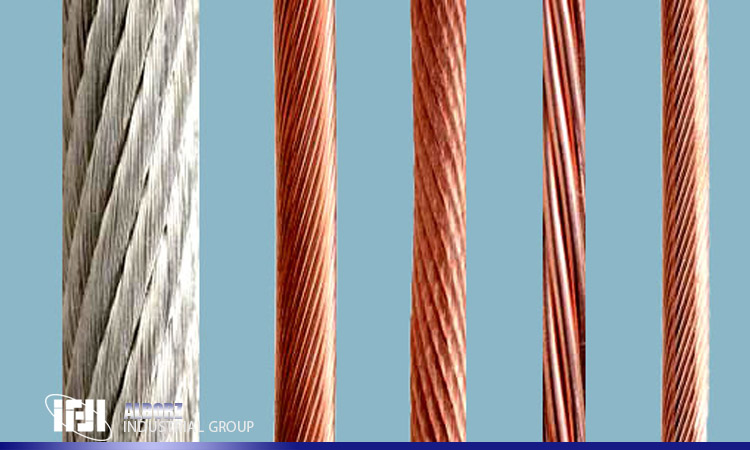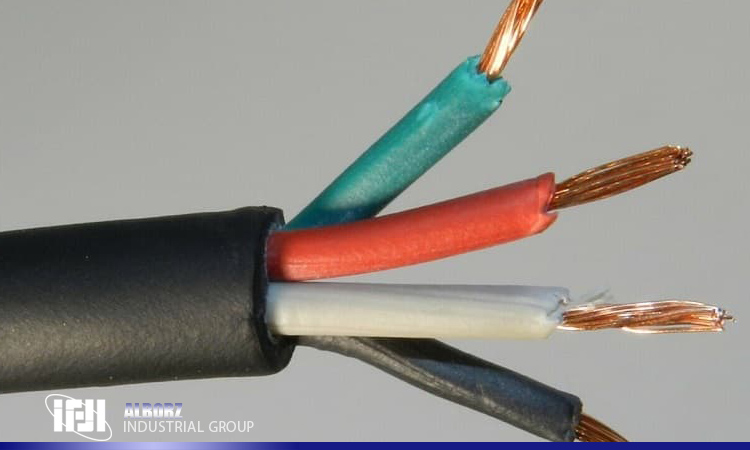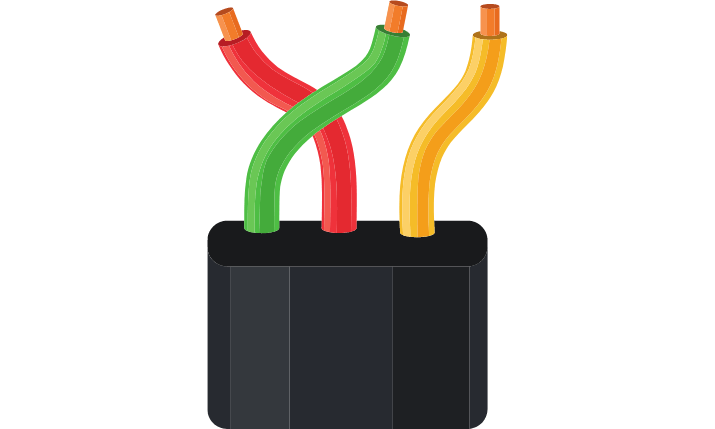The Most Important Metals in Electrical Wires:
Copper: Copper is one of the most widely used metals in electrical wires. Due to its excellent electrical conductivity, flexibility, and resistance to corrosion and oxidation against environmental factors, it is considered the best option for making electrical wires.
Aluminum: Aluminum, because of its electrical conductivity and lighter weight, has lower mechanical strength. Aluminum is used as a substitute for copper in some electrical wires, especially in long-distance transmission lines.
Properties and Applications of Metals in Electrical Wires:
Copper: Copper, as a conductor with unique properties such as high conductivity, flexibility, and stability against environmental conditions, is used in various places including power distribution and transmission cables, electrical and electronic components, and household appliances. This metal is also widely used in different
cable trays.
Aluminum: Due to its lighter weight, aluminum is considered a better alternative to copper for long-distance power transmission lines. It is also used in the automotive industry, energy efficiency, and industrial applications.
The Importance of Choosing the Right Metal for Electrical Wires:
Choosing the right metal for making electrical wires is highly important. The properties of the metal greatly affect efficiency, energy transmission, resistance to heat, and environmental impact. Choosing the wrong metal can lead to energy loss, reduced efficiency, and even safety hazards.

Recycling Metals and Producing Electrical Wires:
In recent years, research on the metals used in electrical wires has led to significant advancements, especially in producing metals with improved properties and developing new types of metals. For example, efforts have been made to improve electrical conductivity, reduce energy losses, and increase resistance against environmental conditions.
However, challenges also exist in this area. The most important challenge is related to the supply of recycled and sustainable metals. With the growing production of electrical wires and the demand for metals, providing recycled metal resources to reduce environmental and economic impacts has become highly important.
Modern Technologies in Electrical Wires:
Modern technologies regarding metals used in electrical wires are under development. For instance, nanostructured metals, which are produced in the form of nanoparticles, have unique properties that can significantly enhance the performance and efficiency of electrical wires.
In the future, numerous innovations are expected in the metals used for electrical wires. From developing metals with improved properties to employing more advanced technologies for manufacturing, shaping, and connecting metals, considerable progress in this field can be anticipated.
Recommendations for the Optimal Use of Electrical Wires:
To optimize the use of metals in electrical wires and improve the quality of electrical systems, the following recommendations should be considered:
– Continuous research and development: Continued research on metals, especially modern and recycled metals, can lead to materials with better properties and a healthier environment.
– Use of advanced technologies: To improve production, connection, and transmission processes, advanced technologies such as nanotechnology, protective coatings, and innovative methods are recommended.
– Use of recycled metals: Encouraging the use of recycled metals to reduce mining, energy consumption, and environmental degradation.
– Raising public awareness: Public awareness of the importance of optimal use of metals in electrical wires and their environmental impacts can promote more sustainable use of metal resources.
– Life cycle analysis: In choosing metals and materials, life cycle analysis from production to disposal is highly important to reduce environmental impacts and improve efficiency.

Conclusion:
The metals used in electrical wires play a very important role in the efficiency, application, and sustainability of these wires. Choosing the right metal ensures energy efficiency and reduced losses. With technological advances and continuous research in metals, we hope that future technologies and innovations will improve electrical wires and energy efficiency, ultimately leading to more sustainable and advanced electrical systems.
The metals in electrical wires are the key factor for their performance and application. Copper, with its unique properties, is often the first choice, while aluminum is also used in some cases as a suitable alternative to reduce weight and costs. In all cases, the choice of the right metal should be made based on needs and conditions to ensure the efficiency and durability of electrical wires.


